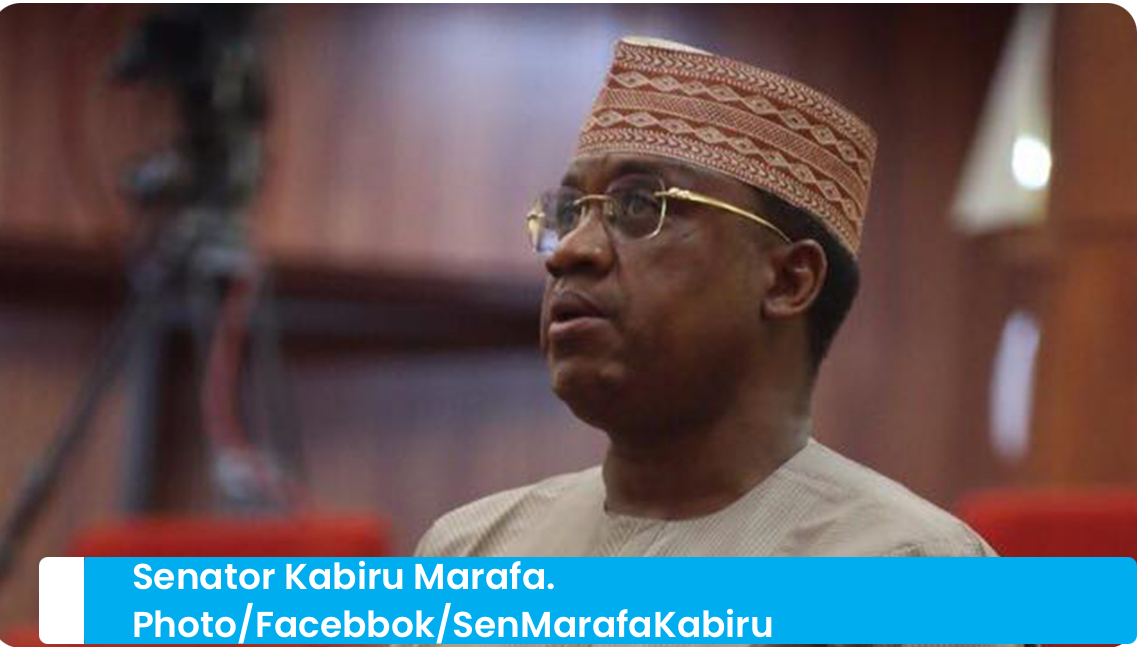On August 29, 2025, news broke that former Senator Kabiru Marafa, who represented Zamfara Central Senatorial District from 2011 to 2019, and his loyalists have dumped the All Progressives Congress (APC), with claims that President Bola Ahmed Tinubu is a “use and dump” politician, and also citing rising insecurity in Zamfara State, and the neglect of Zamfara in political appointments under this administration.
While some might view this as a disturbing development, any keen and objective observer of Zamfara State politics will celebrate his exit. A disruptive and self-serving politician in the party has finally left.
In a contest driven by ego and selfish interests, Marafa’s party, the APC, lost the governorship and other elective offices in the state under his watch. His stance was like: “If I can’t have it, no one will.” The roof crashed on everyone, disregarding the monumental damage and cost to his party’s political fortunes.
It is well-known that in 2018, Senator Marafa ran for the governorship nomination of the APC in Zamfara State, but his bid was marred by internal conflicts within the party. The APC in Zamfara was divided into two factions: one led by Marafa and the other by then-Governor Abdul’aziz Abubakar Yari. Each faction organised its own primary elections, leading to a dispute over the legitimacy of the process.
The Independent National Electoral Commission (INEC) recognised the candidates chosen by Yari’s faction, but Marafa argued that no valid primaries had taken place. He insisted that the party’s internal process was flawed and that the primaries organised by Yari’s faction were illegal. This disagreement prompted Marafa to challenge the primaries, ultimately taking the case to the Supreme Court of Nigeria.
On May 24, 2019, the Supreme Court ruled in favour of Marafa’s position, declaring that the primaries conducted by Yari’s faction were indeed illegal. Consequently, the court’s decision invalidated the election of all APC candidates in Zamfara for the 2019 general elections. As a result, the APC’s votes in Zamfara were rendered void because the party failed to present valid candidates due to the lack of properly conducted primaries.
In the lead-up to the 2023 general elections, Marafa allied with his former political rival from the 2019 election cycle in a bid to realise his ambition of becoming governor. This resulted in a crisis between two factions: one led by Governor Bello Matawalle, who had defected from the Peoples Democratic Party (PDP) to the APC a few months before the start of post-election activities, and another led by former Governor Abdul’aziz Yari and Senator Kabiru Marafa.
The crisis within the APC deepened when the then-National Caretaker Committee Chairman, Alhaji Mai Mala Buni, visited the state to welcome Matawalle to the party and announced that Matawalle was automatically the leader of the party in the state.
Thanks to effective leadership and political maturity displayed by Matawalle, the implosion of the state chapter of the party and a repeat of the 2019 fate were averted, albeit at a cost. Matawalle lost his re-election bid, but the APC remained a united front in Zamfara.
Marafa’s brief association with the Northern Elders Forum and his harsh criticism of President Bola Ahmed Tinubu are not rooted in northern nationalism but rather in a desperate attempt to maintain political relevance.
It is reasonable to speculate that Marafa believed he was a frontrunner for a ministerial slot from Zamfara State, but his hopes were dashed when President Tinubu nominated H.E. Bello Matawalle, and appointed him as Minister of State for Defence. This appointment clearly undermines Marafa’s and his allies’ claims of neglect of Zamfara in political appointments.
It is also noteworthy that Mr Yazeed Shehu Danfulani was appointed as the Chairman of the Nigerian Agricultural Insurance Corporation. This appointment is not only political but also strategic, as Zamfara prides itself on farming, with the state slogan, “Farming is our pride.”
Addressing the allegations of militarisation during the recent by-elections, it should be noted that Zamfara, given its security challenges, could justifiably be considered a militarised zone. To any objective Nigerian, the increased deployment of military personnel was intended to ensure the safety and well-being of the electorate, as these areas are within a hotbed of banditry and terrorism.
While Zamfara remains in the news for security-related matters, it is on record that the Bola Ahmed Tinubu-led administration has neutralised over 20 bandit leaders declared wanted in the last two years. This marks a clear departure from the situation in 2023, when the Muhammadu Buhari-led administration made insufficient efforts to secure the state, heavily militarised the 2023 governorship election, and failed to capture, try, or neutralize a single bandit leader.
Credit:The Guardian

